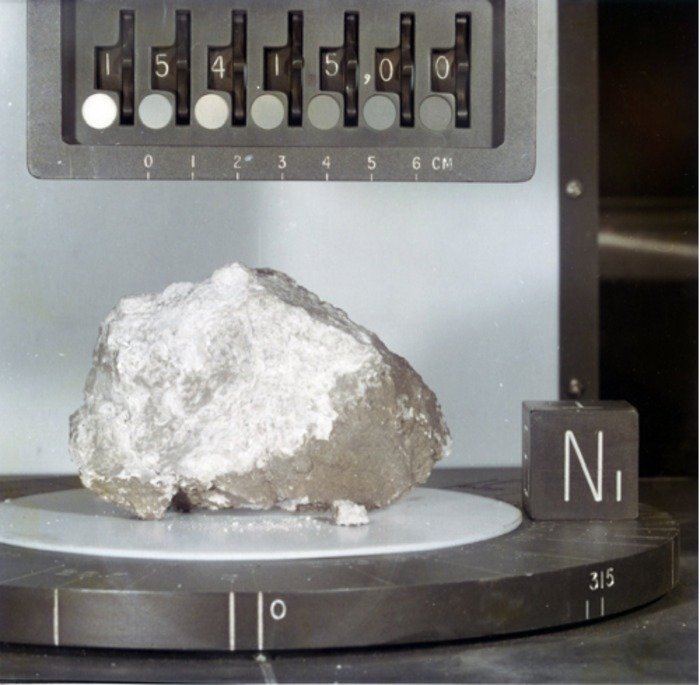Called the "Genesis Rock," this lunar sample collected during the Apollo 15 mission was thought to be a piece of the moon's primordial crust. A University of Michigan researcher and his colleagues report that traces of water were found in the rock. Credit: NASA/Johnson Space Center.
ANN ARBOR, Mich., Feb. 18 (UPI) -- The interior of the moon contained water early in its history, suggesting the formation theories of the moon may have to be re-thought, U.S. researchers say.
University of Michigan researchers and colleagues found tiny amounts of water in mineral grains from samples from the lunar highlands obtained during the Apollo missions.
The lunar highlands are thought to represent the original crust that crystallized from a mostly molten early moon, suggesting the lunar interior contained water during this molten stage before the crust solidified, a university release said Monday.
That's difficult to reconcile with the theory that the moon formed from the debris generated during a giant impact with the proto-Earth and any water in lunar rocks was added after its formation by smaller meteorite impacts or solar wind.
"Because these are some of the oldest rocks from the moon, the water is inferred to have been in the moon when it formed," UM researcher Youxue Zhang said. "That is somewhat difficult to explain with the current popular moon-formation model, in which the moon formed by collecting the hot ejecta as the result of a super-giant impact of a martian-size body with the proto-Earth.
"Under that model, the hot ejecta should have been degassed almost completely, eliminating all water."
The new findings, however, indicate the early moon was wet and that water there was not substantially lost during the moon's formation, the researchers said.















